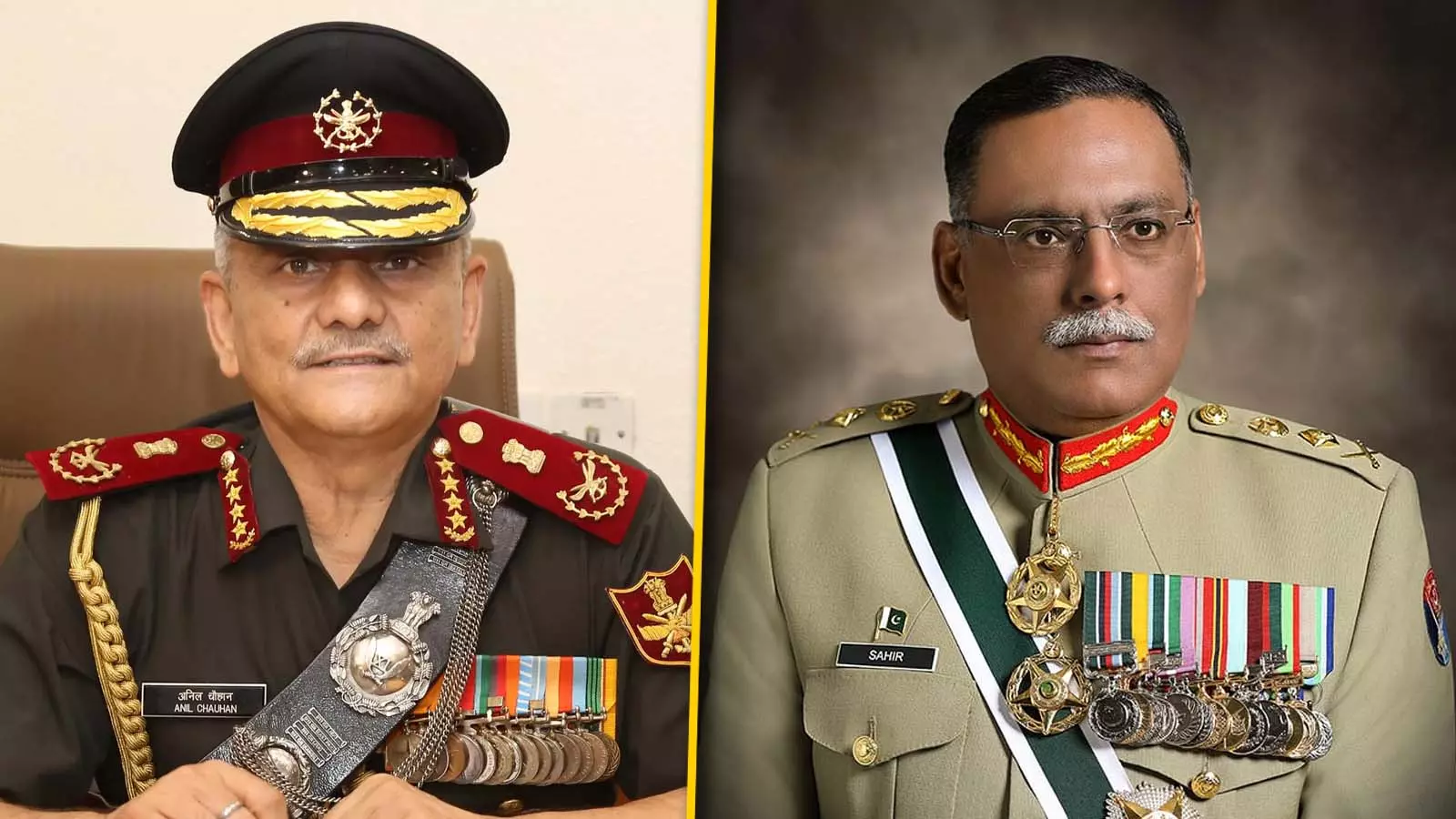
India, Pakistan trade warnings, flex military muscle at Shangri-La Dialogue
While India's CDS General Anil Chauhan said that New Delhi has drawn a new red line for terror, Pak General Sahir Shamshad Mirza said that cities may be targeted next time a clash happens

With the guns falling silent on both sides of the Line of Control (LoC) and the nuclear-armed neighbours shifting to the use of words instead of weapons, the top military leaders of the Indian and Pakistani military traded stern warnings and flexed military muscle at the Shangri-La Dialogue in Singapore on Sunday (June 1).
The development comes amid intense diplomatic activities and strategic recalibration following last month’s military hostilities between the two neighbouring countries, which settled for a ceasefire agreement last month.
In the wake of the recent hostilities, both sides have moved from weapons to words, with India dispatching several delegations to visit more than 30 capitals across the world. A similar effort by Pakistan is set to start on Monday (June 2).
It is in this context that the long-standing tensions between India and Pakistan became the focal point at the gathering of the top global defence forum, held from Friday to Sunday, as reported by Channel News Asia.
Also Read: CDS Chauhan outlines India’s strategy and wins in Op Sindoor: 10 points
‘Limit of India's tolerance’
Referring to Operation Sindoor under which India launched precision strikes on nine terror bases in Pakistan Occupied Kashmir (PoK) and mainland Pakistan, killing at least 100 terrorists, India's Chief of Defence Staff (CDS), General Anil Chauhan, said that with this step India has drawn a “new red line of intolerance” against terror.
"What India has done, politically, they have drawn a new red line of intolerance against terror," he said.
Without directly naming Pakistan, the CDS also said that he was hopeful that with India’s latest step, its adversary would learn that this was the limit to India’s tolerance.
"I hope this particular operation, it's basically lying in the military domain, that should bring about some lessons for our adversary also, and hopefully they learn that this is a limit of India's tolerance," said General Chauhan as quoted by Channel News Asia.
He also said that India has been subjected to this “proxy war of terror for almost two decades” and has lost countless lives.
Also Read: First-ever future warfare course to begin on Sep 23: CDS General Chauhan
Pak's fear of future clashes
The Pakistani military also came up with a strongly worded statement. Speaking at the conference, Pakistan's General Sahir Shamshad Mirza, Chairman of the Joint Chiefs of Staff Committee of the Pakistan Armed Forces, warned that if such a clash takes place again, and if cities become the primary target, then the damage may be done even before the international community can intervene.
"The strategic stability with the lowering of this threshold to the dangerous levels if next time such a conflict occurs and the cities are targeted first, and the borders become irrelevant... there could be a possibility that before the international community intervenes because of the restricted or constricted times window, the damage and destruction may have already taken place," General Mirza said at the event.
He also said that not only is Pakistan taking on terrorism on its soil and working to tackle cross-border terrorism from groups based in Taliban-ruled Afghanistan, but it has also suffered huge financial losses and loss of lives because of terrorist activities.
Also Read: India's military preparedness must remain top-notch: CDS Gen Chauhan
Flexing military muscles
Both sides also highlighted the strength and diversity of their military equipment.
General Chauhan said that the Indian military is not dependent on “one nation” for its military needs, adding, "It's a number of capabilities which were put together, and most of these capabilities were put to good effect.”
General Mirza said that Pakistan has military equipment from several countries, including Turkey, Italy, and the UK. "I have military equipment from the US. I have military equipment from Turkey. I have military equipment from Italy. I have military equipment from the UK," he said. "We have the equipment from all equipment-producing countries,” he added.
The two countries continue to maintain that the use of nuclear weapons was never on the table, with Pakistani officials, including General Mirza, dismissing reports that Islamabad called a meeting of the National Command Authority, the body that oversees Pakistan’s nuclear arsenal.
"The tools of modern conflict are artificial intelligence, electronic warfare, cyber, precision, firepower and weapons," Mirza said.
(With inputs from agencies)

